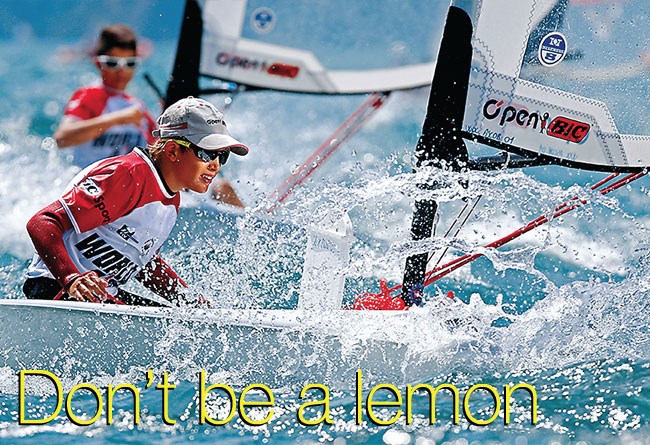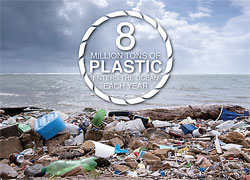

More than 1,000 regattas have now signed up for Sailors for the Sea's Clean Regattas programme
Anyone who sets out on a boat of any type will not be impressed with sharing the experience with floating rubbish. For most of us a big part of the journey is to reconnect with nature and the marine environment in a direct and meaningful way, and floating debris is just an ugly reminder of how man is damaging our precious, life-giving ocean. For some of us traversing at high speeds, this debris may be more than just an eyesore: collisions with debris that has damaged hulls and appendages and ruined races are today becoming commonplace.

Practical solutions
Sailors for the Sea was founded to unite sailors around the need to protect the ocean and our local waters. Since 2004 the non-profit organisation has been working with the sailing and boating community to create easy-to-apply, pragmatic programmes that address current environmental issues. They empower boaters to become catalysts for change.
Sailors for the Sea’s Clean Regattas programme is the world’s only sustainability certification system for water-based events. The Clean Regattas programme is free to use and gives sailors and organisers a template to reduce each event’s environmental impact. With over 1,000 Clean Regattas and 400,000 sailors participating since inception, it is the world’s largest sustainability initiative in the sailing community.
The programme is a sustainability hybrid based on the ISO 20121 standard for Event Sustainability Management; the ISO 14000 standard for Environmental Management; and the Global Reporting Index (GRI) Event Organisers’ Sustainability Guidelines – in conjunction with the international Racing Rules of Sailing. The resulting certification programme gives guidelines to event managers for how to run the most sustainable event possible, both on the land and on the water.
The programme uses a set of 25 best-practices to frame specified certification goals. Setting clear attainment levels helps motivate organisers to target higher levels of certification (bronze, silver, gold, platinum) year on year.
The organisers choose what to participate in based on their event needs, with certain best-practices being required to reach certification levels. These are carefully defined to make use of the programme as easy as possible for busy race organisers and are split into five components: event management, food and beverage, waste reduction, venue management and of course race management.
Sailors for the Sea has also taken the lessons learnt from this successful programme to create a green boating guide for vessels of every shape and size… even those without sails! This is now available free online with 24 of the most important topics covered in detail.
Big problems
As with all environmental issues, numbers best describe the problem: no less than eight million tons of plastic debris enter the oceans from the land every year. Most of this plastic is made of long-chain polymers that do not biodegrade and just break up into smaller and smaller pieces – meaning they will never go away. Microscopic pieces of plastic are eaten by sea life and enter the food chain. It’s been estimated that people who regularly eat seafood could ingest as many as 11,000 plastic particles each year.
And why is all this important? Simple: over 200 million people are directly or indirectly employed in marine fisheries, and more than 2.5 billion people rely on the oceans as a primary source of protein, yet at least $US13 billion in economic damage to marine ecosystems is estimated to be caused yearly by plastic waste alone.
Collectively, petroleum run-off, ocean acidification, warming oceans, overfishing, sea level rise, plastic waste and loss of coastal habitat prompted the United Nations to conclude that 40 per cent of the world’s oceans are being heavily affected by human activity. Environmental challenges like these are not only threatening marine life, but our own health – and the health of our children and the planet for generations to come.
Join the movement
None of this work is possible without sailors like you. In 2016 over 1,300,000 people engaged with Sailors for the Sea programmes and our social media.
But we have just begun the work that must be done to restore the ocean to the vibrant and bountiful resource it once was. Sailors are the people who have the closest relationship to the ocean. If we won’t help to save it, then who will?
You will be able to monitor the work of our organisation in future issues of Seahorse.
Click here for more information on Sailors for the Sea »
We invite you to read on and find out for yourself why Seahorse is the most highly-rated source in the world for anyone who is serious about their racing.
To read on simply SIGN up NOW
Take advantage of our very best subscription offer or order a single copy of this issue of Seahorse.
Online at:
www.seahorse.co.uk/shop and use the code TECH20
Or for iPad simply download the Seahorse App at the iTunes store


